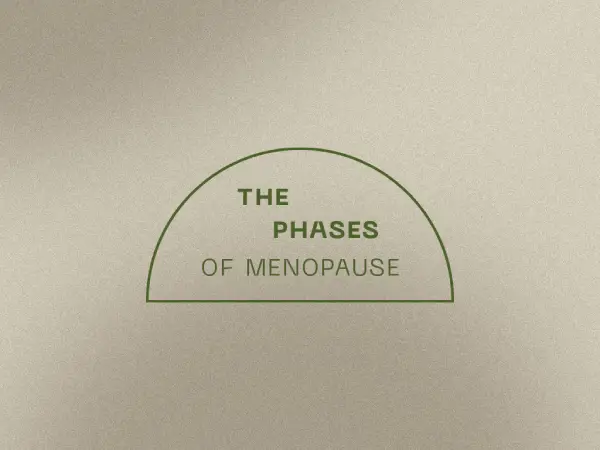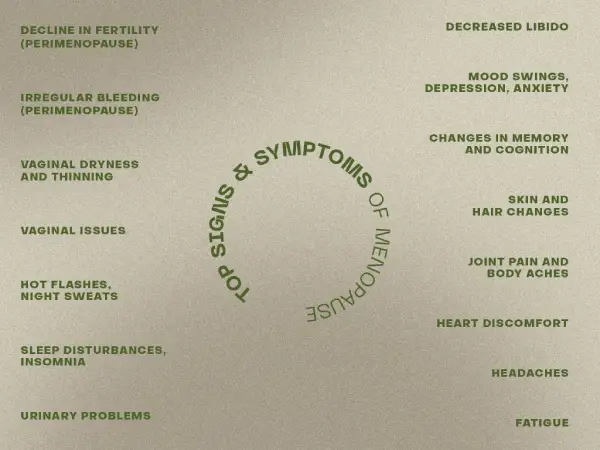Blog
Naturopathic Medicine for Menopause

Menopause, a natural part of biological aging
At a certain time in life, menopause occurs as a natural part of biological aging and is unique to every woman. The average age of menopause is 51 but may range from 40 to 58 depending on various factors involving lifestyle, genetics, pregnancy, and medical history. The age your mother went through menopause may provide a good estimate for yourself.
The word menopause is broken down into meno (month) and pause (pause), meaning the cessation of monthly menstrual cycles. It occurs naturally following the loss of ovarian function, although, it can also be induced medically (for example, from surgical removal of the ovaries).
Unfortunately, many women resist or even fear the coming of menopause. Similar to how menstrual periods are not inherently painful or problematic, menopause is not a disorder, disability, or death sentence. With increased understanding and awareness, the hope is that women will embrace it as the beginning of a new phase of life with an openness to different perspectives and adventures.
With the help of naturopathic medicine, women can feel relieved that there are many ways to prevent potential issues before, ease a difficult transition during, and promote optimal health after menopause. Before we get into this, let’s learn more about menopause and all its phases.
The 4 phases of menopause
Pre-menopause: the time from the first menstrual period until the last menstrual period
This is the preparation phase, when taking good care of yourself matters most – the better health you’re in in your premenopausal years, the more likely you are to experience a smooth journey through menopause.
Perimenopause: the time from before menopause (typically 4-8 years) until menopause
This is the transition phase, when preparing your mind and body for menopause matters most – you should start to shift your mindset and be pro-active about addressing health concerns (especially related to gynecology) and taking supportive measures.
Menopause: the point after 12 months in a row without a menstrual period
This marks the beginning of your new phase in life – congratulations, you made it through, an even stronger and more beautiful women than before – there is so much to look forward to!
Post-menopause: the time from the point of menopause until the end of life
This is the new-life phase, there are important aspects of health to consider in order to maintain health and vitality – the more attention you put on these aspects, the more enhanced your quality of life and longevity will be.
Therapeutic Considerations for Perimenopause & Post-menopause
For perimenopause, the goal is to ease gracefully through the transition of fluctuating sex hormones. Important elements include baseline health status and the severity of associated symptoms or problems. If you have maintained good health up until perimenopause, your body has more reserves and resiliency to be able to handle the transition.
All transitions come with some level of discomfort – women going through perimenopause will often experience transient symptoms that should be tolerable. However, some women may experience health problems associated with menopause that negatively impact how they feel as a person and how they function in their daily lives. Natural medicine can provide supportive care to relieve severe symptoms and treat associated problems.
For menopause, the goal is to prevent at-risk diseases that come from the decline of sex hormones (particularly estrogen). Important elements are extra-ovarian hormone production and management of residual symptoms and/or health problems. Estrogen has protective effects in the body, particularly of the bones, brain, and cardiovascular system.
After menopause, the ovaries shut down their production of estrogen, however, lower levels can be maintained by the adrenal glands and fat tissues. Therefore, adrenal health and body composition become important areas of attention. Staying on top of clinical evaluation, and management can help lessen, delay, or prevent the development of osteoporosis, heart disease, and/or neurodegeneration – all of which are at higher risk after menopause.
Top signs & symptoms menopause:
Naturopathic Therapies for Perimenopause & Menopause
Naturopathic medicine offers many modalities to help support women in all phases of menopause, they can be briefly summarized as follows:
Nutrition
Nutrition plays a fundamental role in health before, during, and after menopause. For example, the Mediterranean diet and specific foods (such as soy and flax) have been shown to have beneficial effects on menopause-related symptoms. Nutraceutical supplements may provide potent and targeted benefits, for example calcium/zinc for bones, melatonin for sleep, vitamin B and D for mood, fish oil for hot flashes, probiotics for immunity, and antioxidants for aging.
Exercise
Exercise plays a fundamental role in health before, during, and after menopause. For example, exercise (particularly weight-bearing) has been shown to reduce cardiovascular disease and breast cancer risk, increase bone density, reduce body fat, enhance energy, relive menopausal symptoms, and improve sense of wellbeing. The recommendation is at least 30 minutes four times a week.
Stress Management
Stress management plays a fundamental role in health before, during, and after menopause. Menopause and all its phases can be an especially stressful time in a woman’s life. Many therapies can help reduce stress, for example counseling, meditation, yoga, breathing exercises, nature, regular exercise, homeopathy, flower essences, adaptogens, and mind-body practices.
Toxin Avoidance
Toxins that affect hormonal health are known as endocrine disruptors. These can affect many aspects of menopause. Examples include pesticides, lead, bisphenol A, and phthalates. Talk to your naturopathic doctor (ND) about how minimize your exposure and/or detoxify from previous exposures!
Botanical Medicine
Herbs can be a powerful way of supporting all aspects of menopause, especially those with affinity for the endocrine, cardiovascular, nervous, and skeletal systems. There are several herbs to choose from – a popular example is maca, which has been shown to increase the body’s production of estrogen, thereby improving sleep, mood, energy, and hot flashes.
Bioidentical Hormone Therapy
Bioidentical hormones require a prescription and are often used to relieve severe symptoms as well as prevent disease. They are available in various forms (such as capsules or creams) and dosages. Talk to your ND about the benefits and risks associated with hormone therapy!
Medical Management
Health conditions should always be well-managed with your health care provider(s). Important testing includes routine screenings (such as mammogram, PAP smear, and DEXA scan), lab testing (such as hormones, metabolism, and inflammation), physical exams (such as general, breast, and pelvic). The need for testing will be determined by your medical/family history, disease risk, and current health problems.
It’s important to note that the age of menopause matters if it is outside of the normal range. For example, early menopause may increase the risk of diseases mentioned above and late menopause may increase the risk of other diseases like breast cancer. There are numerous reasons why this could happen, and it is especially important to see a doctor to evaluate this.
Final Thoughts on the Menopausal Journey
Perimenopause/menopause is a transition from the reproductive years into the postmenopausal years. Although it may be difficult at times, there are many benefits to menopause including the loss of monthly periods (and associated symptoms like PMS or menstrual migraines), the pleasure of sex without the need for birth control, more time for self-care and creative projects, and less responsibilities related to work and family.
It is possible for women to maintain health and happiness throughout menopause. As you can tell, preventative care (healthy lifestyle and management of health conditions) allows the entry into menopausal years at good baseline health. Working with a health-provider, such as an ND, is essential to this journey. Call LIVV today and schedule an appointment to create your preventative or active health plan for perimenopause/menopause!
(619)840-6700
Written by Jordan Valdez, RDN
References
Women’s Encyclopedia of Natural Medicine by Tori Hudson
The Textbook of Natural Medicine by Joseph E. Pizzorno and Michael T. Murray


